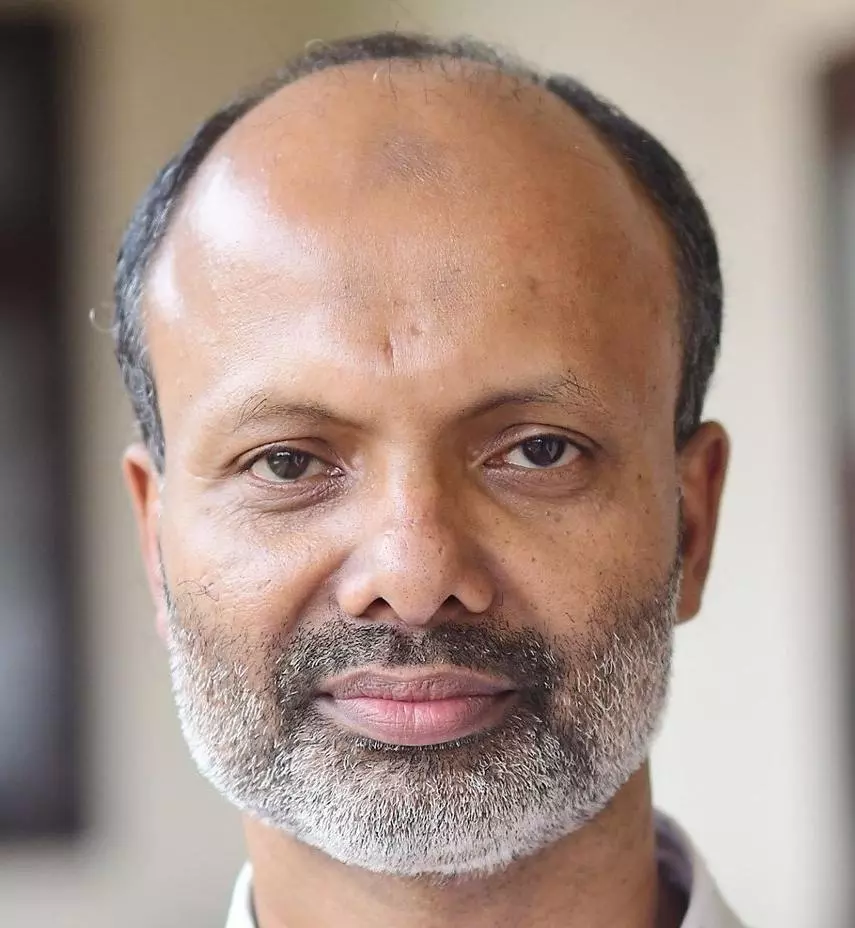
Robert Fisk, the bully against conquerors
text_fieldsIt was the period when the terror attack at the World Trade Center in New York on September 11, 2001, shocked the world as a whole. After the world started regaining its consciousness from the trauma, while hunting for those responsible for the crime, it gradually began to search for the causes and merits or otherwise of terrorism. Different sections of people raised their opinions asking America to prepare itself for realisation and retracing of its steps while having invaded 3/4th of the countries in the world and dismissing their democracies. Several writers then had pointed out that the first step towards stopping terrorism from rising as an antidote to imperialism was for the latter to behave itself. News publication networks like Justin Raymondo's Antiwar.com and ININ become platforms for such anti-imperialist stream of thought.
Edward Said, John Pilger, Rahul Mahajan, Robert Jensen, and many including Martin Lee and Michael Moore wrote sharp criticisms against the bellicosity of imperialism.
Among them, Robert Fisk was working in the Middle East as a foreign correspondent and war correspondent for the British newspaper, The Independent, who wrote in detail about Ground Zero. From among other writers, Fisk, the journalist, stood out for his daring adventures to confront and dig deeper into what the hunters and victims had to say, going after the truth beyond the official version of the hunters and then presenting it to the world in ruthless language.
When the United States blamed Bin Laden for the terrorist attack on the World Trade Center, Fisk, who interviewed him three times, said: America is the country that devised the Missile Defense Shield Project against untamed countries. Laden must have laughed.
from the corner of his room watching America on his satellite TV thinking about the same country's helplessness in preventing those who flew international planes to the twin towers of the World Trade Centre." Fisk was introduced to Malayalam readers when Madhyamam republished a feature named "Bin Laden Chirikkunu'' (Bin Laden smiles) on September 14, 2001."
A senior colleague in Madhyamam had then recalled the story of a senior Malayalam media person (VM Balachandran alias Wimsey) who read this feature and got curious asking who this terrorist was, referring to Fisk. Eventually, Madhyamam started publishing Fisk's analyses one by one. All those who read them were amazed at his outspoken pieces.
He wasn't just simply roaming around as an embedded journalist in military vehicles through conflict lands, but instead, he experienced and then reported the lives of the people living in the war zone – a habit he continued even in his 70s. When Fisk reported live for Channel Four and Discovery Channel during September 11, 1993, terrorist attack in Bosnia, the New York Times was not impressed. They described the Bosnian series as a total sensation and dismissed it. Thus, Fisk became the "controversial media person" till his death.
Robert was the only child of William Fisk, who was a soldier. William who attended World War l was punished by the army for indiscipline, because of his disagreement in executing a warrant for killing another soldier. Born in 1946, he joined as a trainee in the lowa Chronicle at the age of 18. He then became a columnist for 'The Times' between 1972 and 75, and then, their Middle East correspondent till 1988. It was from there that he moved to 'The Independent'. And in the next three decades, his venture was not limited to just the conflict in West Asia but also the Balkans and South Asia where the imperialist instincts were burning aflame. Even for that, the place he chose as the base for his reporting stint was Lebanon's capital, Beirut which was torn down during the civil war. That life continued covering various conflicts like the Lebanon Civil War in the 1970s, Iran Revolution, Soviet occupation of Afghanistan, Iran-Iraq war, Gulf war, Bosnian war, Kosovo wars, Afghanistan-Iraq invasion, the Arab Spring, and the Syrian conflict.
Fisk's journey with Al Qaeda to interview Osama bin Laden by covering the desert lands in Sudan and Nangarhar Mountains of Afghanistan was nothing short of adventurous. Fisk, who had reached at Kila Abdullah in Pak Afghanistan border to report on Afghan occupation, was brutally beaten by a group (who mistook him for a white supremacist) who were protesting against the mass murder in Mazar-e-Sharif. But the next day, Fisk sent a report defending their brutal beatings and said that he represented the westerners and deserved the punishment for all the harm caused by the westerners on the Afghans. He gave a picture of him with his blood-stained face on a torn garment for The Independent's first-page story. Back then, when I contacted "The Independent" to enquire about publishing his articles, the Editor-in-Chief Helen Kinsey shared his number and place of residence at Beirut Corniche. After wishing him greetings from Madhyamam readers and inviting him to India, he replied:" What should I do in a war-free and good country like India?"
And later, after three to four years, I called him to invite him as a guest for a program and got the same answer from the other end of the phone: '' I'm not the person you are looking for," he replied. But he didn't hide either his interest in the topic, as one who had a doctorate in political science, and added that when a suitable time arrives for such a visit, he could think of it; of course, all schedules would go awry if a war breaks out somewhere!
He asserted that it is the faithlessness that has resulted in the loss of the West. And the countries they are invading are not being tamed because of regaining and protecting this faith," he asserted.
When American artist Harry Chris questioned about the division of Muslims into moderates and non-moderates, Fisk said: "Every Muslim I have seen is moderate. The mistake is when we divide people into moderates and non- moderates, radicals and religious fanatics. When one is abandoned and kicked around like cattle, any soft-hearted and gentle liberal would turn into a tiger. What's the use in blaming a community in the name of its race and religion after attacking it in the fear that they will turn against you?"
Whenever the aspirant journalists from the new generation asked Fisk about his opinion on journalism, he gave the same answer to everyone. He said: "If you ask me whether you should be a doctor, lawyer or journalist, I would recommend you to be a lawyer or doctor. Because only someone who can be a bully can be a journalist. It's the job where only a bully can do in this world."
Ultimately, while succumbing to death after suffering an apparent stroke at his home in Dalkey, a suburb of Dublin, Fisk must have felt content for being the "frequent bully" against the conquerors.
(The article was originally published in Madhyamam Daily and it is translated by Fathima Shareef)






















